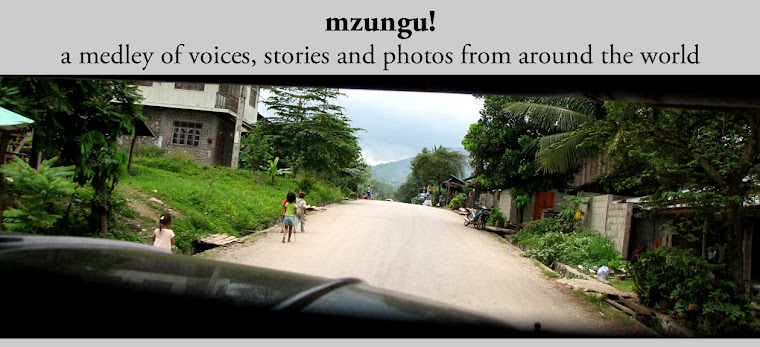Last week I traveled to a refugee camp in western Uganda with a reporter. We were there to document "MakaPads," a project of refugees that makes sanitary pads from all-natural materials for women in the camps. I took over 700 photos in two days, and was overwhelmed with stories from people we met. These are not easy, light stories either.
Ibrahim is from Congo. He fled from the war after his father, mother, and whole family was killed. He’s been in the camp for five years now, and has no plans to return home since Congo is still conflict-ridden. He’s trained as a carpenter, but there’s no market for expensive furniture in a refugee camp, and no jobs outside. He used to dig a garden to keep his wife and child fed, but the school fees he’d like to complete his secondary education are just not attainable. Now he’s working at MakaPads, but that doesn’t pay particularly well.
Then there’s the family of Rwandan refugees who were just leaving the camp to be repatriated in Rwanda. They were going through medical checks and loading their few possessions into a huge UNHCR truck. The prime minister recently gave an ultimatum for all Rwandan refugees to return to their homeland by July 31. Last chance, people. But they’ve been here since the genocide in 1994 and have built up their lives on the fertile soil of Western Uganda. Fifteen years away from your land in such a small country as Rwanda, who knows if you’ll be able to reclaim the land you had before? And last time you were there, your tribe was hacking to death thousands of people with pangas (machetes)… Now the victims are in power, seeking justice, maybe revenge, and will be your neighbors.
And there’s Love, an older Congolese refugee who’s the leader of a music and dance troupe. She composed the songs they danced for us last week, singing about the horrors of Congo and how grateful they are to be in this peaceful land where they can settle and dig.
I’ve heard stories like these before, but the thing is, I’ve never shaken their hands or danced and laughed with them. I’ve never looked the 20,000 refugees in this one camp in the eye and asked if they have a family here. Or, had. And I’ve never walked the red dirt roads of a refugee camp, breathed in the dust, and seen the mud and wood houses. I’ve never eaten their food and pooped in their latrines.
It’s strange to be in the midst of the camp, hearing all these stories, with my snazzy camera, little notebook and pen that jots down names and observations, and my tidy attire. Because at the end of the day, I can drive away and return to the land of freedom, of choice. I go back to a hotel with electricity and choice of clothes for tomorrow. Then at the end of this month, I'm going to fly away to a land that is an utmost dream for so many here, and I can struggle with a decision to go for a PhD or get a job writing about music in the city of my choosing.
I think freedom is really about choice. I’m grateful for this freedom. I truly am. I’m not going to ditch my degree and go live in Kyaka refugee camp in order to identify with these people. No. But I am going to use my skills and freedoms for others, to help others. I don’t know how, but I’m going to start by taking good pictures that tell the stories well, and writing interesting stories that convey the dignity of the people.
[Pictures coming once I sort them all out!]
06 July 2009
Subscribe to:
Post Comments (Atom)



Even though the refugees don't have many choices as to their living conditions, they do still have choices. Just like us, they can choose how they will deal with their particular set of circumstances. This inner freedom cannot be taken away, and perhaps may be stronger for them than for those of us who are more affluent. We may have something yet to learn from them about "freedom."
ReplyDeleteDear Anna, I'm a design student and I'm doing a research on Makapads..I would like to ask you a couple of questions but I could not see your email. this is my mail: cansuaka@gmail.com
ReplyDeleteCan you contact me? Thank you:D